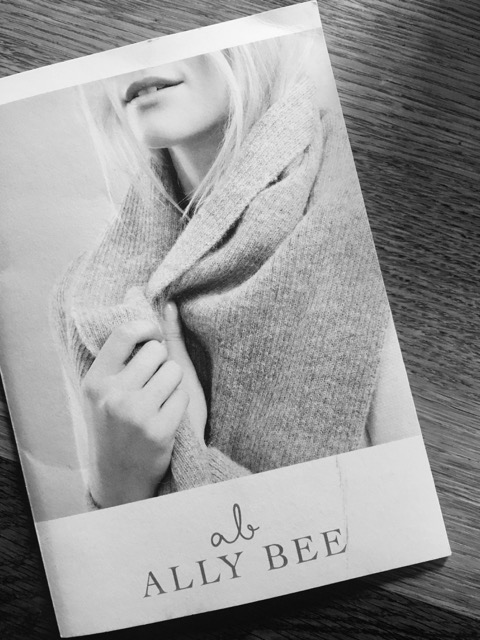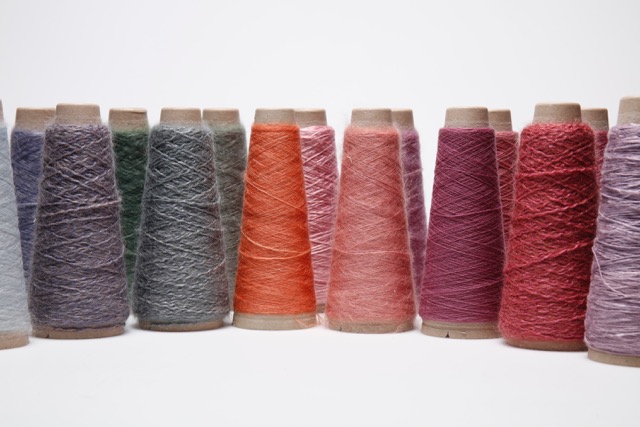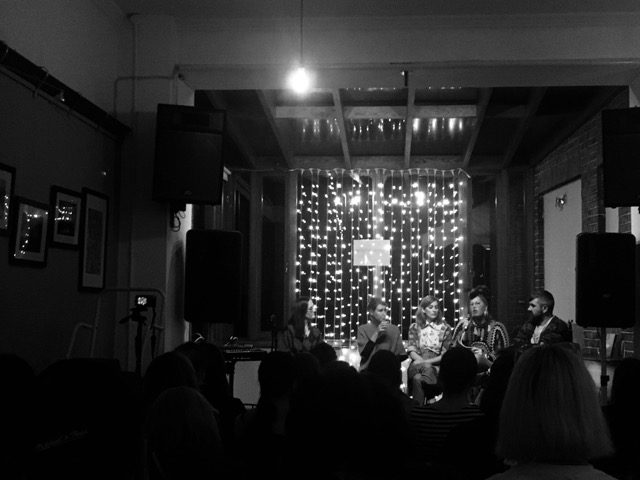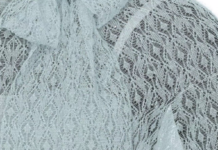Escaping the rain in Bethnal Green, attendees were welcomed into the atmospheric Gallery Café at St Margaret’s House on Thursday. Hosted by Charlie Ross, founder of environmentally friendly fabric store Offset Warehouse, the evening discussed the challenges that small start-ups face when establishing their sustainable brand.
Joined by designers Alison Baker, Katie Jones, Kate Morris and Timothy Andrews, elements the 4 designers focus on within their own brands were discussed, and their journeys to sustainable practice were generously shared.
The prevailing message of the night was one of picking battles.
“If you try to be everything to everyone, it just cannot and will not work out” explained designer Katie Jones.
Encouraging research of methods and materials thoroughly, the panel suggested selecting options that are achievable on smaller scales, allowing intuitive growth into a unique ethos.
This was sound advice to students who often feel overwhelmed with problems to solve, wondering where to begin when trying to better their sustainable practices.
Katie Jones, Founder of Katie Jones
With a wealth of experience in industry and her own business, Katie spoke of the industry pressures on small brands to forgo original values in order to push sales. Mark ups and profit margins aren’t widely understood by consumers. With a belief that this dis-connect between consumers and the processes behind their clothes fuels irresponsible purchasing, (particularly highlighting the fact that crochet garments are all created by hand, but are sold for tiny amounts on the high street), Katie formed her latest venture.
Now designing collections of crochet patterns where individuals can crochet their own garments, Katie opens the craft to a wider audience. Explaining that her patterns accommodate different budgets, Katie addresses the argument that sustainability is a luxury afforded to those well off enough to pay the often higher price tags. Katie’s patterns enable anyone to wear her designs by being able to select yarns within their budget, whilst also educating wearers about the construction methods and value held within the manufacturing of their clothes.
http://www.katiejonesknit.co.uk/
Kate Morris, Founder of Crop Knitwear
Studying her BA in Fine Art, Kate returned to MA Study at Nottingham Trent University, after gaining industry experience. Kate’s MA was very focussed- advice she suggested to an audience member who asked the panel their views on the value of MA qualifications. Kate said the MA was an opportunity to focus on what truly mattered to her- something not often accommodated in industry settings.
Kate started her brand of vegan knitwear valuing renewable, responsibly sourced plant fibres and exploring minimal seam usage. Defining her material pallet and construction methods in such a way allowed Kate to narrow her focus and solve problems on a manageable, realistic scale.
Alison Baker, Founder of Ally Bee

In contrast to the ‘Crop’ Approach, Ally’s Brand began rooted in an exploration of British Alpaca. Lawyer turned knitwear designer Alison, started her brand based on a love of the Alpaca fibre. She set herself the challenge of designing garments from fibre – up. Meaning, the garments were led by material choice and the design followed. This ‘Cradle to Cradle’approach, Alison explained, makes her luxury garments biodegradable and means their whole life cycle is considered.
Using British materials and manufacturing, Alison explained the challenges of having her yarn spun consistently on a small scale. This yarn was not strong enough to endure the tests of time and create lifelong garments. To achieve a long impact approach, Alison has moved on to stock service, Cradle to Cradle certified yarns.
In this way, Ally Bee is a brand that creates responsible knitwear whilst having adapted from small-scale production: an inspiring story for brands on the road of development. (https://ally-bee.com/pages/ethical-sustainable )
Timothy Andrews, Founder of Knitworks London.

Beth Ranson’s MA material collection
RCA Alumni Tim explained sustainable design from his perspective as a teacher. Tim emphasised his role in re introducing designers to the tactility of the knitting machines. Often working digitally, he spoke of the freedom industry designers feel when returning to flat bed machines again for days of experimenting.
Tim explained how the craft process of knitting advances ideas and encourages problem solving, which promotes responsible design. By returning to the roots of the creation process, designers are reminded to stop demanding processes and materials of which they have no understanding- they are forced to unpick and justify their ideas. Conscientious design is embedded in this fundamental understanding of methods and materials.
Further Reading:
To find out more about the steps that can be taken towards sustainable practice, take a look at the following websites and work out where your efforts are best focussed to really make a difference.
http://sustainable-fashion.com/
https://www.fashionrevolution.org/
http://www.tedresearch.net/teds-ten/

Subscribe To Our Newsletter
Join our mailing list to receive the latest news and updates from our team.














